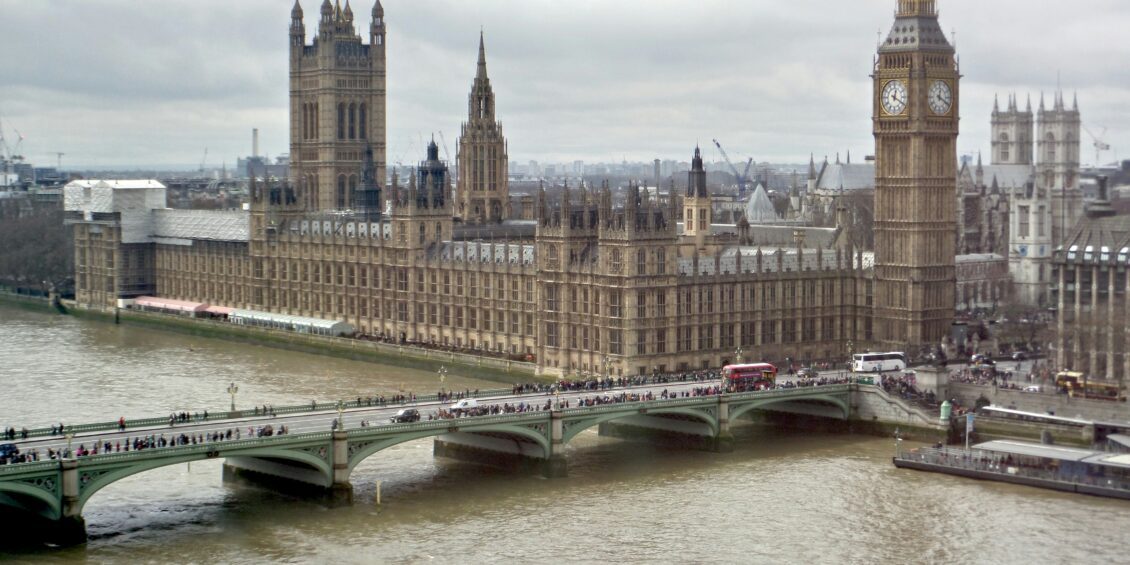
Meeting NASUWT members in Liverpool
It was a pleasure to take an exhibition stall to NASUWT conference in Liverpool earlier this year and launch our updated ‘Trade Union Case for Political Reform’ booklet.
Just like MPs, support for electoral reform is growing amongst trade unionists and it was pretty non-stop on our stand. We had so many interesting conversations, answered questions and signed up lots of new supporters.
We were especially pleased that so many teachers of politics and citizenship stopped by for a chat and to collect materials to inform their lessons. To get the facts about voting and the need for reform into the hands of educators and the next generation is a real win.
As we explained to everyone, it’s free to sign up and we don’t send hundreds of emails or try and sell you anything – we just need to know we have your support. You can show your support by signing up here.
Are we seeing the end of the two party system?
Mike Wright, Head of Communications at the Electoral Reform Society (ERS) published an excellent article on the hot topic of the day, ‘whether we are seeing the end of the two-party system’. This was prompted by Reform’s success at the ballot box in May.
The rise of the far right has always been a concern amongst trade unionists but this result shows that Reform is now benefiting from the ‘distortions of the First Past the Post (FPTP) system, which has traditionally favoured the big two parties.’
Talking to the BBC, elections expert Prof. Sir John Curtice said:
‘This is the first time that a party other than Conservatives or Labour have been ahead in the projected national vote share calculation – and Reform’s estimated 30% is well above the 23% that Ukip scored at the height of its popularity in 2013.’
‘This is the first time that the combined share of the vote for Conservative and Labour has been below 50%, underlining… the fragmentation of British politics in these elections.’
First Past the Post doesn’t work when voters are actively voting for multiple parties. This is because when 100% of the vote is split between five or six parties, plus independent candidates, the one that simply has the highest number of votes wins. It can produce a result like that in Truro Moresk & Trehaverne where the first candidate over the finish line wins a seat on only 19% of the vote.
Under a proportional system, people in Truro Moresk & Trehaverne could have stated second preferences. This may have delivered the same result or a completely different one. What it definitely would have done is deliver Councillors with the support of more than half their constituents. There would still be a choice of candidates to vote for and no need for tactical voting or dodgy bar charts.
As Mike says; ‘In effect, people are already voting as if we have a multi-party voting system, which is another reason why we need to move to a fairer proportional system that accurately reflects how they’ve voted, whether at Westminster or at town halls.’
If you would like to receive updates from ERS then it’s free to sign up to their newsletter.
The All Party Parliamentary Group for Fair Elections (APPG)
Support for fair elections continues to grow inside Parliament. The APPG for Fair Elections is now the largest all-party group in Westminster, with over 150 members including 130 MPs.
Visit their website and scroll down to see if your MP is a member. If not, please write to them and ask them to join the APPG. You can find our template letter here.
The APPG recently held a parliamentary reception to celebrate the new milestone with guest speakers that included; Professor Rob Ford, Abtisam Mohamed, Labour MP for Sheffield Central, Parth Patel, Associate Director for Democracy & Politics, IPPR, Manuela Perteghella, Liberal Democrat MP for Stratford-on-Avon and Blair McDougall and Labour MP for East Renfrewshire.
The results of the 2024 general election and the 2025 local elections highlighted the urgent need to improve our democracy. The growing gap between the number of seats gained in our elections and the vote share needed to secure power is so large that this is now the parliament that least represents how the British people voted in our history. Elections are no longer fair. Quite rightly, this is encouraging more and more MPs to put aside their political colours and uniting them to call for a commission on electoral reform.
You can find out more about the work of the APPG on their website and download a copy of the report ‘Free, But Not Fair’.